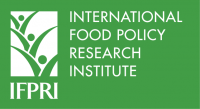G20 Agriculture Ministers commit to collaborate on healthy, sustainable food future

The countries that make up the G20 account for around 60 percent of the world's agricultural land, some 80 percent of global agricultural trade, and about two-thirds of global population. As such, these countries have an important role to play in global food and nutrition security, as well as sustainable agricultural production.
In late July, the G20 Agriculture Ministers met in Buenos Aires to discuss and agree on priorities heading into this year's G20 Presidential Summit in November-December. The Agriculture Ministers Joint Declaration, released July 28, highlights member countries' ongoing commitment to ending hunger and creating an inclusive, sustainable food system.
The Argentine G20 Presidency has set out three main priorities for its term:
- The future of work: Unleashing peoples' potential
- Infrastructure for development: Mobilizing private resources to reduce the infrastructure deficit
- A sustainable food future: Improving soils and increasing productivity
The Ministerial track on Agriculture has focused mainly on the third priority. The July meeting was attended by the highest Ministerial authorities and representatives from all G20 member countries, plus other countries invited by the Argentine government. Representatives from leading international organizations, including FAO, IFPRI, IFAD, the World Bank, ILO, and the World Organization for Animal Health, were also in attendance.
IFPRI Director General Shenggen Fan delivered a statement highlighting the complexity of global trends and the current rise in anti-globalization sentiments. He argued that to ensure a sustainable food future for all, we will need a broad, integrated food-systems approach that maximizes combined benefits and minimizes trade-offs. He then expanded on possible actions to be taken regarding soil health, food loss and waste, information and communications technologies (ICTs), anti-microbial resistance (AMR), and trade, and highlighted what IFPRI and the CGIAR are doing on those topics.
The declaration from the Agriculture Ministers acknowledged the central role that G20 countries play in the global food system and the need for strong collaboration, both among countries and between the public and private sectors, in order to achieve food and nutrition security, promote sustainable agriculture, and address the challenges of climate change. The Agriculture Ministers also emphasized the need to invest in and encourage adoption of new technologies and agricultural management practices, take multi-sectoral, multi-disciplinary approaches to global challenges, and involve agricultural producers in the design, implementation and evaluation of sustainable agricultural systems.
In the two previous meetings of Deputies (in March in the city of Rosario and then in July in Buenos Aires, in which IFPRI also participated) member countries engaged in extensive debates about several issues, including climate change, trade, the monitoring of soil health, and the use of antibiotics to fight anti-microbial resistance. Representatives recognized the fact that hunger and malnutrition stem from a complex range of causes, many of which transcend national boundaries. As such, they agreed upon the need for an open, transparent multilateral trading system based on rules set forth by the WTO.
Such a system can contribute to job creation, inclusive economic growth, the promotion of sustainable agri-food value chains, and responsible agricultural investment to increase sustainable productivity. While members debated the exact language to use in their agreement, they also recognized the need to address the challenges related to climate change, to share information and knowledge related to soil health and to monitor the use of antibiotics, among other things.
All 20-member countries signed the Agriculture Ministers declaration, committing to work collaboratively toward ending hunger, promoting sustainable agriculture, and ensuring a sustainable food future for all.
Valeria Piñeiro is a Senior Research Coordinator in IFPRI's Markets, Trade and Institutions Division (MTID); Sara Gustafson is an MTID Communications Specialist.
